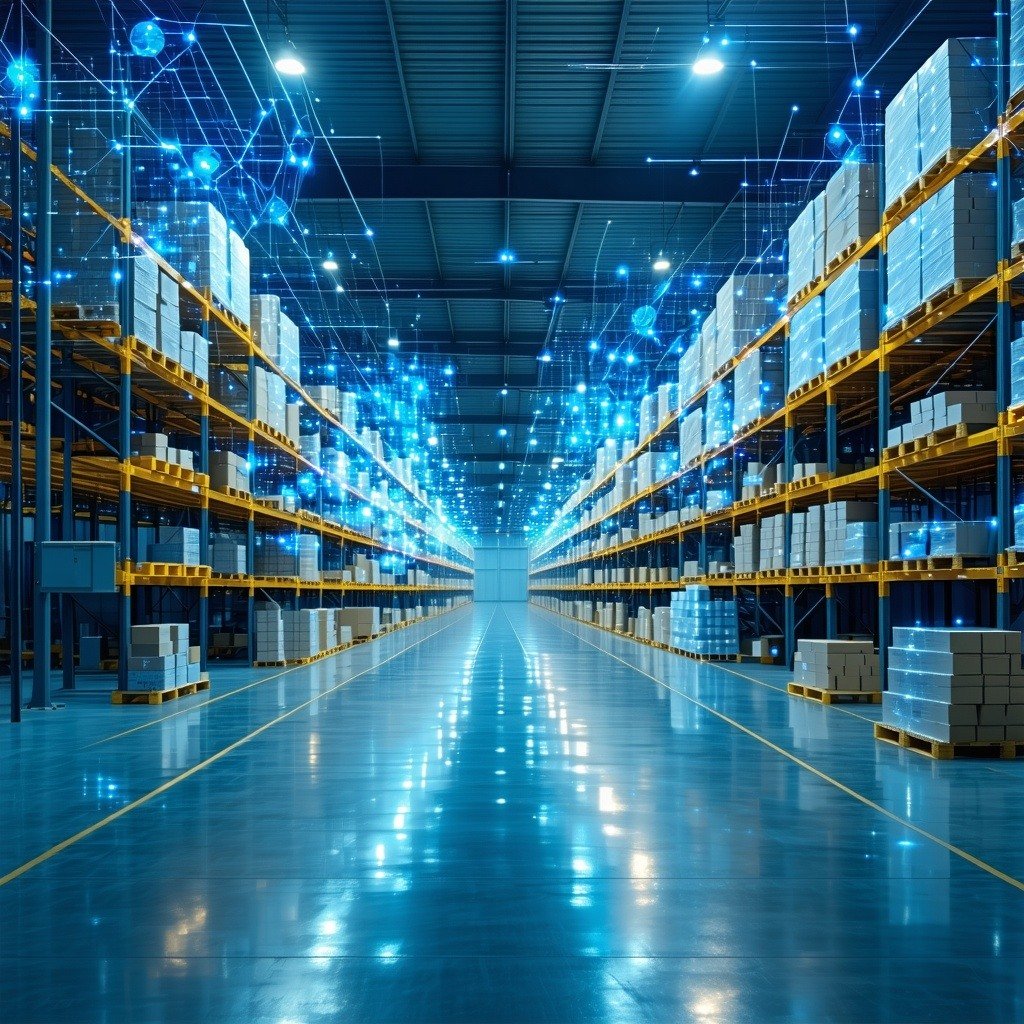Launched in fall 2020, the Extensiv Supply Chain Scholarship aims to foster the talent that will drive the future of our industry. Now in its fifth year, the Extensiv scholarship program hopes to inspire fresh ideas and voices in logistics and supply chains.
Below, we present Leith Elzie, a Spring 2025 Extensiv Supply Chain Scholarship runner up, and his essay describing how the future of supply chain management will rely on symbiotic relations between AI and human operators.
Since I’m currently pursuing a B.S. in marine transportation, my perspective on supply chain management (SCM) is from a maritime point of view. While the shipping business is relatively esoteric, in comparison to trucking, it plays a vital role in SCM. According to economist Thibault Denamiel, "Maritime supply chains remain the backbone of the global economy. 80% of global trade by volume and over 70% by value is transported by sea." Maritime transport remains integral to global supply chains, and technological advancements and evolving global standards increasingly influence its efficiency, security, and sustainability. As the maritime industry looks toward the future, the next big advancement in SCM is poised to come from the industry’s integration of artificial intelligence (AI). This technology is set to revolutionize how shipping companies manage their supply chains by enhancing efficiency, reducing costs, and fostering unprecedented levels of customization.
Before evaluating the future, it's important to assess the current state of maritime SCM. Recently, one of the most significant developments in maritime transport has been the rise of digitalization. "The arrival of commercial subscription services...which showed vessel positions, meant that for the first time ship operators could see where their competitors' ships were. This brought advantages during fixture negotiations" (Clayton, 2024). Ships and logistics operations are increasingly integrating with the Internet of Things devices, sensors, and real-time tracking technologies. These systems provide critical data on cargo location, condition, and vessel performance and advanced data analytics that enhance collaboration among supply chain partners. Additionally, at The Great Lakes Maritime Academy, students are required to take courses covering cybersecurity & electronic navigation (more commonly known as Electronic Chart Display). The industry has become so digitized that the U.S.'s scientific agency NOAA has announced that they will discontinue the production of physical nautical charts. With this in mind, AI technologies will undoubtedly be the next frontier for shipping SCM.
One of the most talked-about applications of AI in maritime operations is in the development of autonomous vessels. Self-driving ships promise to reduce the need for a large crew, which, by extension, significantly reduces labor costs and addresses the shortage of qualified maritime professionals. These ships use AI algorithms to make real-time decisions, similar to how autonomous vehicles operate on land. The introduction of autonomous ships, smart shipping systems, and automated cargo-handling equipment will transform how goods are transported across the globe. The benefits of autonomous ships extend beyond cost savings. These vessels will be equipped with advanced sensors, AI algorithms, and real-time data analytics, allowing them to optimize routes, reduce fuel consumption, and improve safety. Additionally, AI can help companies monitor global events in real-time and predict how they might affect their supply chains. For example, AI can track news reports, weather forecasts, and geopolitical developments to alert businesses to potential disruptions before they occur, allowing companies to make proactive decisions. The true potential of these technologies will be realized when autonomous systems and AI are integrated into a cohesive and interconnected supply chain. For example, AI-powered predictive analytics could help determine the most efficient routes for autonomous trucks and drones. Meanwhile, real-time data from these vehicles could be fed into AI systems to continuously optimize supply chain operations. Autonomous vessels have the potential to operate continuously, significantly enhancing delivery speed and facilitating more efficient 24/7 supply chain operations. As businesses strive to meet the growing demands of consumers, integrating these cutting-edge technologies will become not just a competitive advantage but a necessity.
Supply chain disruptions caused by geopolitical issues, natural disasters, pandemics, rising transportation costs, and inventory mismanagement continue to challenge businesses. Furthermore, as consumer expectations rise, companies are increasingly pressured to deliver faster, cheaper, and more customized products. The traditional methods of inventory management, transportation, and logistics are simply no longer sufficient to meet these demands. By embracing the potential of autonomous systems and AI, companies can build more responsive, flexible, and sustainable supply chains that are better equipped to navigate the challenges of a rapidly changing global landscape. The future of SCM will rely heavily on symbiotic relations between AI and human operators.
 Essay by Leith Elzie
Essay by Leith Elzie
Student at Great Lakes Maritime Academy
Works Cited
- https://www.csis.org/analysis/state-maritime-supply-chain-threats#:~:text=Maritime%20supply% 20chains%20remain%20the,value%2C%20is%20transported%20by%20sea. (Denamiel, Thibault 2024)
- https://www.lloydslist.com/LL1138544/How-has-shipping-changed-after-25-years-of-digitalisati on (Clayton, Richard 2021)
- https://www.solutelabs.com/blog/digitalization-in-maritime-industry (Prakash, Donga 2024)
- https://nauticalcharts.noaa.gov/charts/farewell-to-traditional-nautical-charts.html#:~:text=This% 20is%20driven%20by%20several,electronic%20navigational%20systems%2C%20and% 20GPS (2024)
- https://www.mitags.org/ai-impact-maritime-industry/ (2023)

